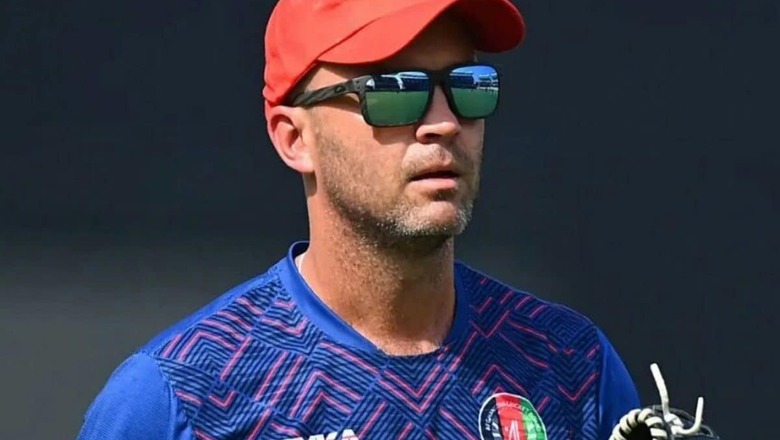
views
India closed out the three-match T20I series against Afghanistan on a thrilling note as the men in blue polished off a 3-0 whitewash of the visitors in a game that required two Super Overs to decide the winner.
Both teams were tied at 212 runs in 20 overs, and a tie-breaker was required to find out the result of the game. However, even the super-over ended up in a draw and a repeat of the tie-breaker was called for as the sides played out a second super-over, in which team India emerged victorious.
There were several talking points throughout the runtime of the game, with one particular instance eliciting a reaction from Afghanistan coach Jonathan Trott.
“I have no idea. Has there ever been two Super Overs? That’s what I am trying to say, it is sort of new,” Trott said after the game.
“We keep setting these new sort of rules,” the former English international added.
“What I am trying to say is we kept testing the rules, we kept testing the guidelines,” he continued.
Trott also said that Afghanistan wanted to toss the ball to Azmatullah Omarsai for the second super over too, following his performance in the first tie-breaker, but had to hand the responsibility to Farheed Ahmed as the ICC rule books state that a bowler who bowled in the previous Super Over shall be ineligible to bowl in the subsequent Super Over.
“It was not communicated. We wanted Azmat to bowl the second over again, Fareed bowled a great over,” Trott said.
“But those sort of things will be explained because it has happened, these things will be explained and done in writing in the future,” he continued.
“If those are the rules, that’s great. I just think we had a good game, and I don’t think that should be the talking point,” the 42-year-old concluded.
Indian skipper Rohit Sharma, who notched up a brilliant unbeaten 121 run knock off just 69 deliveries in the regulation 20 overs, was at his best in the super over in which he whacked two back-to-back sixers as India chased their target of 18 runs set to them by Afghanistan in the first super over.
Rohit rotated strike to his partner Yashasvi Jaiswal in the penultimate ball of the over and retired hurt with India requiring 2 runs off the last ball, as the quick running Rinku Singh came on to replace the skipper at the non-striker’s end to give the team a better chance to pick up a double and close out the game.
India could only manage a single off the last delivery and another super over was needed before India could romp to a win.
But this is where it got tricky as Rohit came out to bat in the second super over and the captain led from the front yet again to smash a six and four before being dismissed as India put up 11 runs on the board before Ravi Bishnoi’s spin magic did the trick for India by scalping two Afghanistan players to close out the game and the series.
What the statutes state:
The ICC charter states in 25.4.2 that ‘if a batter retires because of illness, injury or any other unavoidable cause, that batter is entitled to resume his/her innings. If for any reason this does not happen, that batter is to be recorded as ‘Retired – not out’.’
The following appendage in 25.4.3 quotes that, ‘if a batter retires for any reason other than as in 25.4.2, the innings of that batter may be resumed only with the consent of the opposing captain. If for any reason his/her innings is not resumed, that batter is to be recorded as ‘Retired – out’.’
Further, the charter of rules also states that in case of a tied Super Over, any batsman dismissed in any previous Super Over shall be ineligible to bat in any subsequent Super Over.




















Comments
0 comment